#colorectal cancer awareness
Text
hey chat kinda serious post today but uh
along with it being women's history month, it is also colorectal cancer awareness month!
march is always very important to me, because my mom has had stage four colorectal cancer for about six years now.
back in 2018, they gave her 6 months to live, but through many surgeries, and many many rounds of chemo, she is still standing, and living her best life today!
so fuck cancer, and tell someone who has colorectal cancer, (or who has a relative/knows someone who has it) you love em!
also get a colonoscopy 💙
#colorectal cancer#cancer#cancer awareness#colorectal cancer awareness#colorectal cancer awareness month#awareness#💙#colon cancer
2 notes
·
View notes
Text
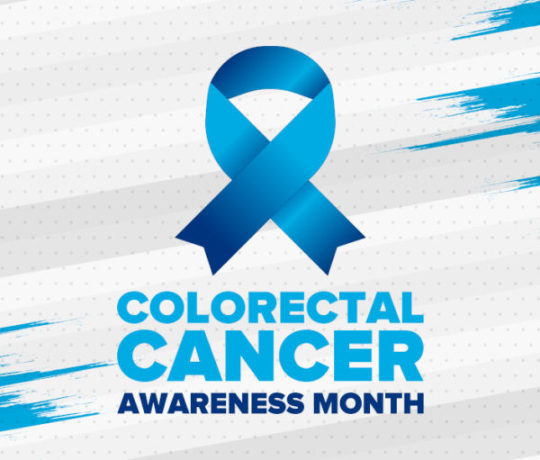
March is Colorectal Cancer Awareness Month.
I wanted to post something about it sooner but I decided to wait till we had all mom's blood work results and her CT scan results.
This morning my mom had her post scan appointment with her main surgeon.
A bit about my mom's journey. She got her colon cancer diagnosis in November 2018, went through radiation and chemo pills (10 a day) and then had her surgery on the 2nd of April 2019.
Long story short, she had to lose her bladder and a piece of her colon. She has a colostomy and urostomy. Due to attachment issues at the surgical site, they had to do two emergency surgeries, with the second one leading to a temporary ileostomy.
Ever since then, it has been constant trips to the hospital and long stays as well. She had been over a month in ICU when she had her surgery.
Anyways, fast forward to last year January, my mom ended up in ICU with septic shock and she came as close to dying as one can without actually dying. She was REALLY sick. The doctor did not think my mom was going to survive.
All we did was pray. Soooo many people prayed!
My mom got better and stronger. There were talks that she was going to have to get dialysis her whole life but till this day no dialysis needed!
And today she heard that she is still cancer free!!!!
Going on towards 4 years now. She may also finally be able to get the temporary ileostomy reversed but that will depend on how her kidneys are doing.
God has been so great to us!
I would like to thank everyone that has supported us and to those that donated to my mom's medical bills fundraiser. You have no idea how grateful we still are. Even those that signal boosted!! Thank you so much as well.
Please, if you ever feel like something is wrong get it checked out. Rather be safe than sorry. Get second, third or even more opinions if you need to! Four GPs missed my mom's cancer. If they had caught it sooner she may not have had to deal with so much these 4 years.
You know your body. Take care of it and seek help if you need to.
Much love and kindness to you all.
3 notes
·
View notes
Text
Colon cancer, also known as colorectal cancer, is a type of cancer that affects the colon or rectum, which are integral parts of the digestive system. This form of cancer is among the leading causes of cancer-related deaths worldwide. However, with advances in medical technology and the dedication of healthcare professionals, early detection and regular screenings have become essential tools in the fight against colon cancer. Among the leading experts in this field is Dr. Ram Chandra Soni, renowned as the best Colorectal Cancer Doctor in Faridabad. In this article, we will discuss the importance of colon cancer awareness, the significance of regular screenings, and the role of Dr. Ram Chandra Soni in this vital aspect of public health.
#Best Gastroenterologist in Faridabad#Colorectal Cancer Awareness#Colorectal Cancer Doctor in Faridabad
0 notes
Text
Colorectal Cancer: Important Types, Risk Factors, Treatment, And Prevention
Colorectal Cancer: Important Types, Risk Factors, Treatment, And PreventionIntroductionWhat is Colorectal Cancer?Types of Colorectal Cancer Adenocarcinomas Carcinoid Tumors Gastrointestinal Stromal Tumors (GISTs) Lymphomas SarcomasRisk Factors for Colorectal Cancer Age and Gender Family History Personal Medical History Lifestyle Factors Inflammatory Bowel Disease (IBD)Symptoms and Early Detection…

View On WordPress
#Adenocarcinomas#Bowel Cancer#Carcinoid Tumors#Chemotherapy for Colorectal Cancer#Colon Cancer#Colorectal Cancer#Colorectal Cancer Awareness#Colorectal Cancer Diagnosis#Colorectal Cancer Prevention#Colorectal Cancer Screening#Colorectal Cancer Staging#Colorectal Cancer Surgery#Colorectal Cancer Treatment#Early Detection of Colorectal Cancer#Gastrointestinal Stromal Tumors#Genetic Risk of Colorectal Cancer#Healthy Diet for Colorectal Cancer#Immunotherapy for Colorectal Cancer#Lymphomas#Radiation Therapy for Colorectal Cancer#Rectal Cancer#Risk Factors for Colorectal Cancer#Sarcomas#Symptoms of Colorectal Cancer#Targeted Therapy for Colorectal Cancer
0 notes
Text
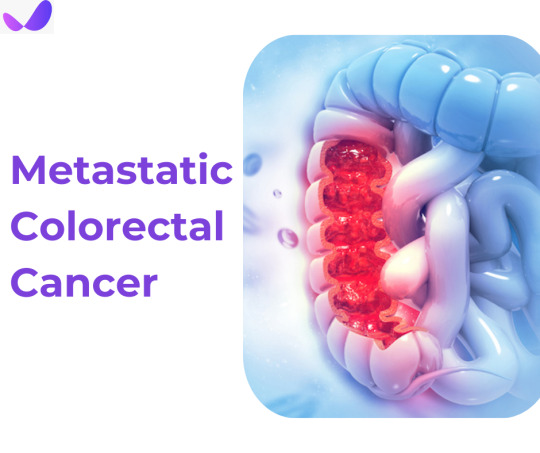
#Metastatic Colorectal Cancer#stage 4 cancer#metastatic cancer#Colorectal Cancer#metastatic cancer symptoms#healthblog#daily health updates#dixvlogslive#trending#healthcare#cancer awareness
1 note
·
View note
Text
Oncologist in UAE: Expert Cancer Care for Your Well-Being
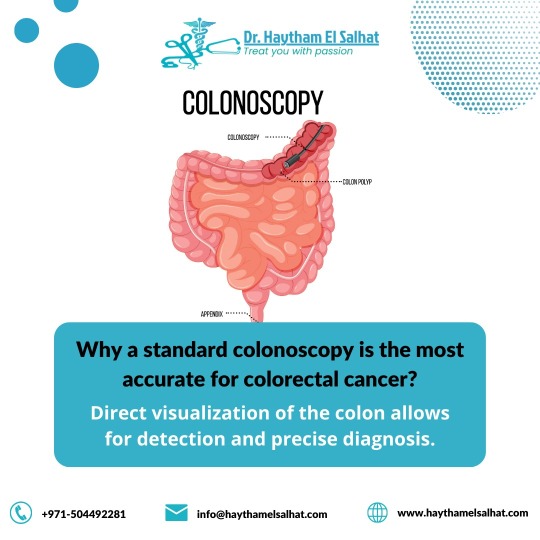
Other screening tests for colorectal cancer, such as fecal occult blood tests (FOBTs) and flexible sigmoidoscopy, are not as accurate as colonoscopy. FOBTs can detect blood in the stool, which can be a sign of colorectal cancer. However, FOBTs are not very sensitive, meaning that they can miss some cases of colorectal cancer. Flexible sigmoidoscopy allows the doctor to view the only the rectum and the lower part of the colon.For these reasons, standard colonoscopy is the most accurate screening test for colorectal cancer. It is important to note that colonoscopy is not 100% accurate
Here are some additional reasons why standard colonoscopy is the most accurate for colorectal cancer:
1. It is a direct visualization of the colon. This means that the doctor can see any polyps or tumors that may be present, even if they are small or flat.
2. It allows the doctor to take biopsies. This means that the doctor can remove a small sample of tissue from any abnormalities that are seen. This tissue can then be sent to a lab for testing to determine whether or not it is cancerous.
3. It allows the doctor to remove polyps. This can help to prevent these polyps from becoming cancerous.
If you are at risk for colorectal cancer, talk to your doctor about getting screened. Colonoscopy is the most accurate screening test available, and it can help to save your life.
Book an appointment at www.haythamelsalhat.com
OR
Call at +971 50 449 2281
#colorectalcancer#colorectalawareness#colonoscopy#colorectalcanerscreening#cancertreatment#uae#dubai#medical#doctor#healthcare#abudhabi#mediclinic#oncology#surgeon#mediclinicmiddleeast#breast cancer awareness uae#proctologist in abu dhabi#breast cancer screening abu dhabi#colorectal surgery abu dhabi#oncologist in uae
0 notes
Text
March national awareness month is 🎙️
health.gov/news/202302/march-national-health-observances-nutrition-colorectal-cancer-and-hivaids
let’s be mindful and proactive so we’re on the prevention side of things. 🤔
View On WordPress
0 notes
Link
0 notes
Note
He took his sister to the Oscars with him, the biggest night of his life so far. Sometimes we forget how difficult it still is. We see him smiling, shining, but he still has a mourning in his heart that he carries with him and will carry with him for so long and I hate that so many people who know, stop at nothing to belittle what he is achieving. We need to give him a break, we don't know what happens when he comes home, how much he suffers and how difficult it is for him (general "we" of course)
For those who don't know, Taylor wore blue to the Oscars because blue is the colour for colorectal cancer awareness (his sister Kristy's cause of death). March is colorectal cancer awareness month too.
This is so incredibly touching, I actually gasped out loud when I first learned it. I think part of being a public figure, or at least a good one is being this beautiful bright image and keeping darker and sadder things to themselves. And to know that he's carrying this grief all while smiling and joking with/for us, and that people still attack him over that is heartbreaking. You're right, while unfortunately we can't just make the haters disappear, at the very least we can and should be kind and respectful to him.
I hope Kristy knows how much her brother loves her, and as an older/oldest sister, I just know she is so fucking proud of him. I hope Taylor knows that. 💙
61 notes
·
View notes
Text
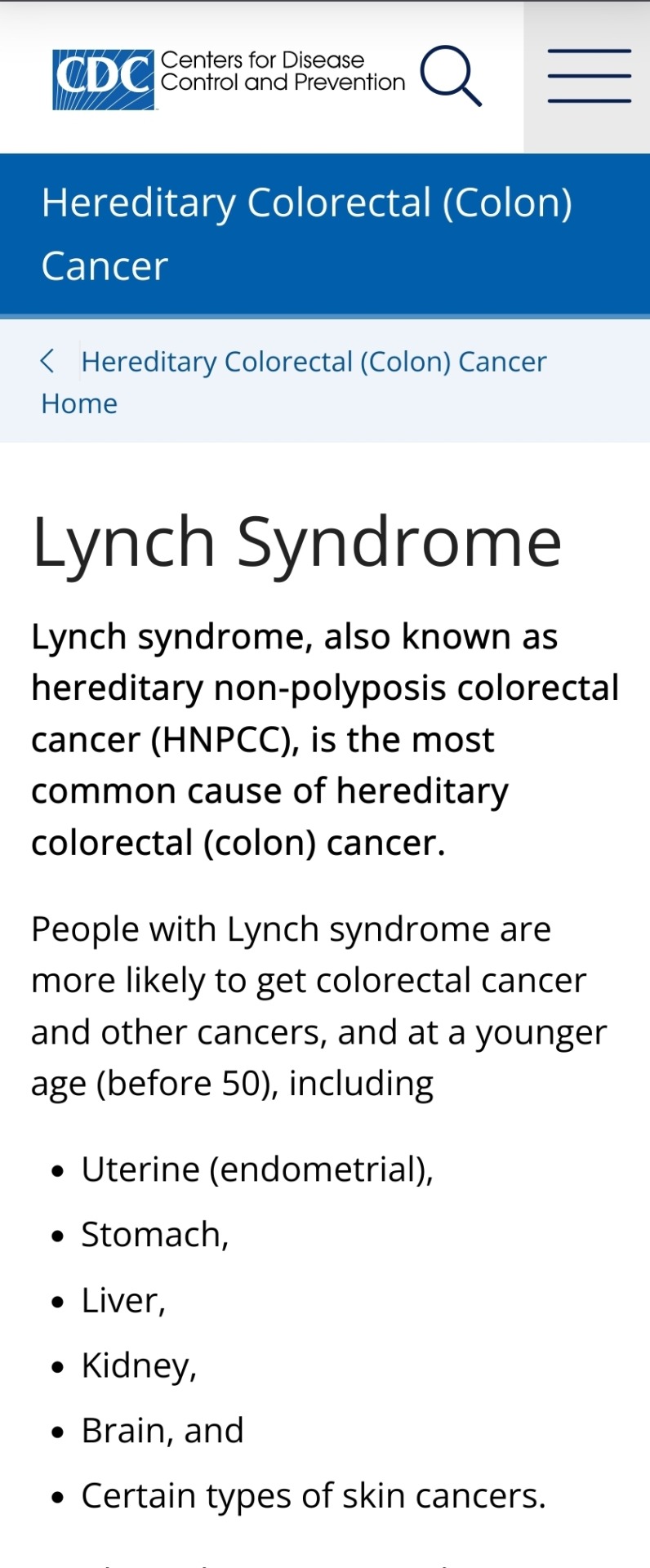
22 March is National Lynch Syndrome (HNPCC) Awareness Day here in the United States.
From the Dana-Farber Cancer Institute: "More than one million people in the United States are carrying a genetic mutation that greatly increases their risk for developing a variety of cancers, especially colorectal cancer. However, most people living with this inherited condition, known as Lynch Syndrome, are unaware of it, or are diagnosed only after they have developed cancer. [...] If Lynch Syndrome carriers are identified early through genetic testing, there are several cancer surveillance and prevention measures that can help to prevent cancer from arising in the first place or aid in detecting cancer at its earliest and most treatable stages."
As someone diagnosed with Lynch Syndrome, I encourage you all to stay on top of your yearly physicals, get your colonoscopy every couple of years (even if you think it's pointless), and undergo genetic testing if you have a strong family history of any of the cancers on the above list.
Knowing your risk factors and staying on top of your health can save your life. Trust me - I know.
11 notes
·
View notes
Text
Harnessing the Power of Calcium: Exploring Its Benefits and Plant-Based Sources
Calcium is an essential mineral that plays a vital role in maintaining overall health and well-being. While many associate calcium with dairy products, there are numerous plant-based sources that provide this crucial nutrient. In this blog post, we will delve into the benefits of calcium for the human body and explore some of the best plant-based sources to incorporate into your diet.
The Importance of Calcium:
Calcium is widely recognized for its role in building and maintaining strong bones and teeth. However, its benefits extend far beyond skeletal health. Calcium is also involved in muscle contractions, nerve function, blood clotting, and the regulation of enzyme activity. It is particularly crucial during childhood and adolescence when bones are growing, as well as during pregnancy and breastfeeding.
Additionally, adequate calcium intake throughout life may reduce the risk of developing osteoporosis, a condition characterized by weak and brittle bones. Furthermore, research suggests that calcium may play a role in managing blood pressure and reducing the risk of colorectal cancer.
Plant-Based Sources of Calcium:
For individuals who follow a plant-based or dairy-free diet, it's important to be aware of alternative sources of calcium. Here are some of the best plant-based sources to consider:
1. Leafy Greens:
Dark, leafy greens such as kale, collard greens, turnip greens, and spinach are excellent sources of calcium. These nutrient-packed vegetables not only offer calcium but also provide other essential vitamins and minerals.
2. Almonds:
Almonds are a versatile and nutritious snack that contains a considerable amount of calcium. Additionally, they offer healthy fats, protein, and fiber, making them a valuable addition to your diet.
3. Sesame Seeds:
Sesame seeds, commonly used in various cuisines, are a rich source of calcium. They can be sprinkled on salads, added to baked goods, or used in homemade granola for an extra calcium boost.
4. Tofu and Tempeh:
Tofu and tempeh, both derived from soybeans, are excellent plant-based sources of calcium. These versatile protein sources are widely used in vegetarian and vegan cooking and can be incorporated into a variety of dishes.
5. Fortified Plant-Based Milk Alternatives:
Many plant-based milk alternatives, such as almond milk, soy milk, and oat milk, are fortified with calcium to provide a comparable amount to dairy milk. Be sure to check the labels to ensure adequate calcium content.
6. Chia Seeds:
Chia seeds not only provide calcium but are also rich in omega-3 fatty acids, fiber, and antioxidants. They can be added to smoothies, oatmeal, or used as a topping for yogurt or salads.
7. Beans and Lentils:
Beans and lentils, including chickpeas, black beans, and lentils, are not only excellent sources of protein and fiber but also contain notable amounts of calcium. They can be incorporated into soups, stews, salads, or even used as a base for veggie burgers.
Calcium is an essential mineral that contributes to numerous functions within the human body. While dairy products are often associated with calcium, there are plenty of plant-based sources that can provide this vital nutrient. By incorporating leafy greens, almonds, sesame seeds, tofu, fortified plant-based milk alternatives, chia seeds, beans, and lentils into your diet, you can ensure an adequate calcium intake while enjoying a diverse and nutritious plant-based lifestyle. Remember to consult with a healthcare professional or registered dietitian for personalized guidance on meeting your calcium needs and maintaining optimal health.
For more detailed and comprehensive information, I recommend referring to reputable sources such as:
National Institutes of Health (NIH) - Office of Dietary Supplements:
Website: https://ods.od.nih.gov/factsheets/Calcium-Consumer/
Mayo Clinic:
Website: https://www.mayoclinic.org/drugs-supplements-calcium/art-20363792
Harvard T.H. Chan School of Public Health:
Nutrition Source - Calcium: https://www.hsph.harvard.edu/nutritionsource/calcium/
Vegetarian Resource Group:
Calcium in the Vegan Diet: https://www.vrg.org/nutrition/calcium.php
These sources provide evidence-based information on calcium, its importance in the human body, and plant-based sources of calcium.
Remember, it's always a good idea to consult with a healthcare professional or registered dietitian for personalized advice regarding your specific dietary needs and health concerns.
#food#vegan#foodie#healthy#health#vegetarian#fitness#diet#nutrition#plant based#calcium#vegan cooking#what vegans eat#bone health#plant strong#plant medicine#educate yourself#learnsomethingneweveryday#fortheloveofnutrition#vegetable#fitblr#fitspo#healthy eating#health food#healthier
35 notes
·
View notes
Text
Ostomy Awareness
October 7th 2023 is Ostomy Awareness Day! So I'm going to make you aware of ostomies whether you like it or not!
If you've never heard of an ostomy before, the first definition I get searching it is, "Surgical construction of an artificial excretory opening, as a colostomy or ileostomy." Which is just sort of a complicated way of saying, "the end of your intestines/urinary tract is surgically placed outside the skin such that the stuff that comes out of it ends up in a disposable bag."
Ostomies are, in general, considered a gross thing to talk about for a lot of people (which, alright. it's poop/pee. fair). But getting an ostomy is a life-saving procedure that about 100,000 people undergo in the US alone each year. The most common reasons for getting an ostomy are:
medical issues where the intestine or urinary tract is causing active harm to the individual, e.g. ulcerative colitis or colorectal cancer
specific injuries like car crashes that result in trauma to the abdomen
things like bowel obstructions that require surgery or removal of parts of the intestines
I couldn't find a great public domain image of what they look like, so here's a quick drawing:

The red bit is called a stoma, and is made up of a part of your intestines/urinary tract. The placement will differ slightly depending on the situation, but it'll always be roughly in that lower abdominal area. The bag is made up of plastic and rubber, and is made up of two parts: a base and the pouch itself. The base is made of a circular rubber "wafer" adhered to the skin using strong glue, and is replaced every few days or once a week. The pouch is attached to the wafer, and is replaced more often as needed. The one I have pictured here has a clear plastic front, but most people who have ostomies for an extended period of time end up using ones with non-transparent fronts (some people also get cloth coverings to go over the pouch that have fun designs).
I had an ostomy nearly a decade ago as just a temporary thing between surgeries, but I still think about it a lot. For me personally, my ostomy ended up being a really painful, embarrassing experience. I was in high school at the time, and having the whole "there is bodily waste coming out of my stomach" thing going on on top of just the general stress of having severe health issues was a lot. Nowadays I feel strongly about making it a more normal, commonplace thing to talk about, if just for kids who have to go through that sort of thing themselves.
But all of that said, I'd be wrong not to mention that there's a ton of people who have had ostomies for the majority of their lives and feel really happy with them. Ostomies can mean a huge relief in terms of chronic pain, and over time, it just becomes a normal part of people's lives. Chances are you've met someone with an ostomy before and never realized, due to the fact that it's often hidden under clothing.
#woe; tmi infopost be upon ye#health#ostomy#ulcerative colitis#crohn's disease#cw medical#cw surgery#cw blood#cw illness#ask to tag
18 notes
·
View notes
Text
Women are dying of cancer because of sexism in healthcare, a report in The Lancet has suggested.
The analysis says that “unconscious gender bias” and discrimination means that women are too often receiving “sub-optimal care”, with major cancers being missed.
Researchers said that a focus on reproductive and maternal health, and on “women’s cancers” – such as breast and cervical cancer – too often meant prevention and treatment of other types of cancer was neglected. Two thirds of deaths from cancer in patients below the age of 50 are those of women, researchers said, with many dying “in the prime of their life”.
The Lancet commission, called Women, Power and Cancer, calls for a “feminist” approach to medicine, saying that 1.5 million lives a year could be saved by better detection, diagnosis and elimination of risk factors.
A study published alongside the piece found that 24,000 women between 30 and 69 die every year from cancers that could be avoided.
Six in 10 could be prevented by earlier diagnosis or improved lifestyles, while four in 10 could be avoided by better access to good treatment.
The commission brought together scholars of gender studies, human rights, law, economics, social sciences, cancer epidemiology, prevention and treatment, as well as patient advocates.
Too little focus on risk factors
Dr Isabelle Soerjomataram, from the International Agency for Research on Cancer, said: “Discussion about cancer in women often focus on ‘women’s cancers’, such as breast and cervical cancer, but about 300,000 women under 70 die each year from lung cancer, and 160,000 from colorectal cancer – two of the top three causes of cancer death among women, globally.
Furthermore, for the past few decades in many high-income countries, deaths from lung cancer in women have been higher than deaths from breast cancer.”
She added that there was a need for policies to increase awareness of such risks.
The report said that too little focus was given to alerting women to the risk factors for cancer. It cited a study that found only 19 per cent of women who attended a breast cancer screening knew that alcohol was a major risk factor.
Researchers also said that women were often served worse than men, even after diagnosis. The authors said: “Sexism within healthcare systems in the form of unconscious gender biases and discrimination can lead to women receiving sub-optimal care. For example, multiple studies have found women with cancer are more likely to report inadequate pain relief and be at greater risk for undertreatment of pain compared to men.”
Dr Ophira Ginsburg, the senior adviser for clinical research at the National Cancer Institute’s Centre for Global Health and co-chair of the commission, said: “The impact of a patriarchal society on women’s experiences of cancer has gone largely unrecognised. Globally, women’s health is often focused on reproductive and maternal health, aligned with narrow anti-feminist definitions of women’s value and roles in society, while cancer remains wholly under-represented.”
She added: “Our commission highlights that gender inequalities significantly impact women’s experiences with cancer.
“To address this, we need cancer to be seen as a priority issue in women’s health, and call for the immediate introduction of a feminist approach to cancer.”
(archive)
9 notes
·
View notes
Text
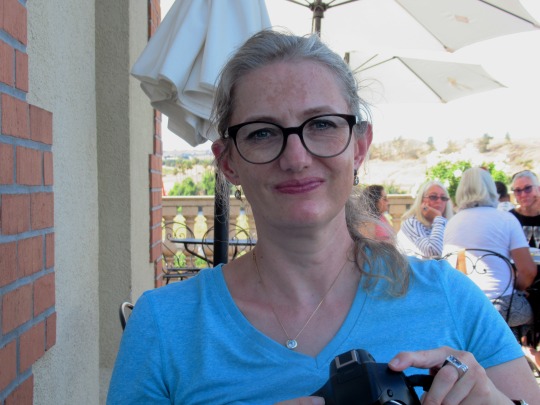


















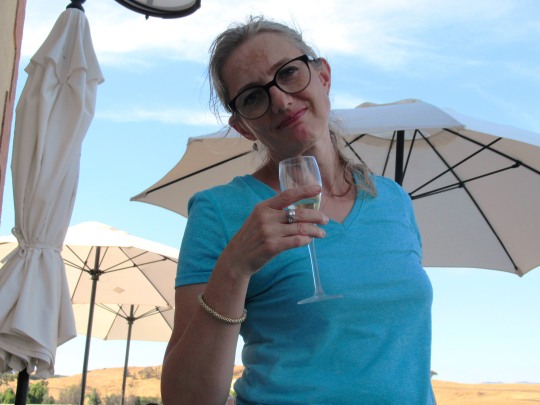
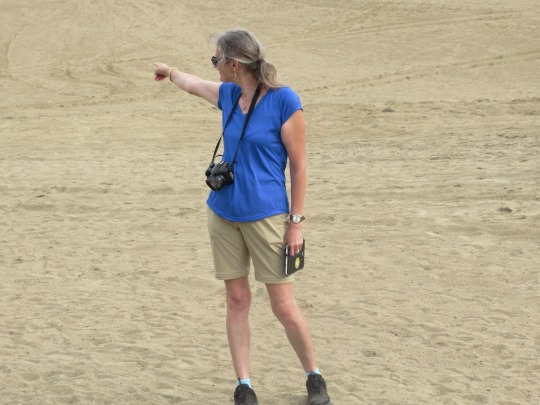






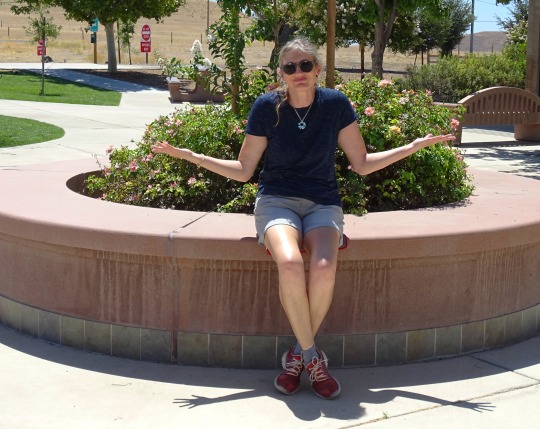


National Dress in Blue Day
The idea for ‘National Dress in Blue Day’ was originally come up with by Anita Mitchell, a stage IV colon cancer survivor who had lost a close friend and her own father to the disease. Greatly saddened by the fact that both of those tragedies could have been prevented, Ms. Mitchell saw a need to bring greater awareness to cancer that not many people wanted to discuss.
So, in 2006, she worked with her children’s school to coordinate a recognition day. That very year in March, students who normally had to wear uniforms to class were allowed to wear a blue outfit of their choice, if only they made a $1 donation to colon cancer awareness.
There have been some hopes to turn all of March, and not just the first Friday of the month, blue by promoting colon cancer awareness all month long, much like National Breat Cancer Awareness Month takes place every October.
History of Blue Dress Day
Anita then brought the ‘National Dress in Blue Day’ concept to the Colon Cancer Alliance. ‘National Dress in Blue Day’ was first launched in 2009 by the Colon Cancer Alliance in a massive nationwide campaign. It was introduced to raise awareness of colon cancer as well as to recognise the bravery of those suffering from the disease, and the now nationally-recognized blue star was chosen to symbolize both the memory of loved ones lost to colon cancer and the perspective of a better future without the disease.
With its actions, the Colon Cancer Alliance hopes to encourage people to become more interested in the potentially fatal threat that is colon cancer, by for example getting screened regularly in hopes of being able to detect any warning signs before the situation becomes much more serious.
Diagnosis of cases of colorectal cancer through screening tends to occur 2-3 years before diagnosis of cases with symptoms, and thus screening has the potential to reduce colon cancer deaths by 60%. It has been found, in fact, that most colorectal cancers should be preventable altogether, through increased surveillance and lifestyle changes, such as simple diet changes or an increase in the amount of physical activity an individual does, which makes prevention a truly important aspect.
Carmen Marc Valvo, an American fashion designer, partnered with the Colon Cancer Alliance in 2011 to promote National Dress in Blue Day after hew own personal struggle with the cancer.
How to celebrate blue dress day
Individuals, companies and neighbourhood groups celebrate ‘National Dress in Blue Day’ by wearing blue and encouraging their friends, family and colleagues to do the same. There are many different ways this can be used to raise money. Proceeds raised through ‘National Dress in Blue Day’ are used to fund important research and prevention programs, as well as to provide support to patients.
As one example, businesses can allow their employees to wear jeans and a blue t-shirt instead of their usual uniforms, in return for a small fee. Some people both raise awareness and show support for friends or family members who have suffered or are suffering from colon cancer by wearing a shirt that says simply, “I’m blue for my son” or, “I’m blue for Sarah”.
An individual can also collect sponsorship from their friends and family in return for dressing head to toe in blue for a day – including clothing, shoes, make up and even hair dye! This money is then of course donated to the Colon Cancer Alliance, and used both to help survivors of colon cancer as well as do more research into possible ways to hopefully one day cure it completely.
Source
#National Dress in Blue Day#NationalDressinBlueDay#1 March 2024#USA#Morro Bay#Louis M. Martini Winery#California#Utah#Nevada#summer 2023#vacation#travel#landscape#cityscape#tourist attraction#landmark#original photography#first Friday in March#Yukon#British Columbia#Alberta#Canada#2022#Alaska#Whistler#Whitehorse#Omak#Washington#Napa#Domaine Carneros
2 notes
·
View notes
Text

So first of all it's aro awareness week. If people are calling it month, that's new.
Secondly, there are more than twelve extremely marginalized identities. Not only that, but you chose to complain about one that most people outside of aromantic circles don't even fucking know about! Aro erasure is so damn bad that unless you know an aro, you probably don't know aromantics exist!
Thirdly, April is National Autism Awareness Month, National Child Abuse Prevention Month, National Parkinson's Awareness Month, Earth Month, Sexual Assault Awareness Month, and National Arab American Heritage Month. November is Native American Heritage Month, Diabetes Awareness Month, Epilepsy Awareness Month, and National Homeless Youth Awareness Month. March is Women's History Month, HIV/AIDS Awareness Month, and Colorectal Cancer Awareness Month. All of that, btw, is in the US alone!
It's not co-opting to address multiple issues at the same time. Do you think we should just let aromisia and aromisic erasure continue until racism is all gone? What is your solution? What time will you give to aros? We're ignored during pride month - told we're cishet invaders and don't belong. We took a week and now the entire community, including black aros, are "co-opting black history month" for having that week.
You wanna say we should co-opt disability pride in July? AAPI Heritage and Mental Health Awareness and Jewish American Heritage in May? Latinx heritage in September? Are you going to suggest that we should shut up and not be so obnoxious about our identity outside of June, just like all the queermisic allocishets?
When does our very existence get to get acknowledged, not lumped in and under the hypervisible queer identities, but having our own time where people can't sweep us under the rug again? That's the whole reason it's not in June in the first place!
The worst part is, there's so much racism in the queer community that we could actually be addressing! Insisting on uplifting aros of color during aro week, and queer people of color during pride month! Talking about how racism and queermisia intersect, how so much of queermisia originated as a tool of white supremacism and colonialism, how white queer people benefit from racism even over nonqueer people of color in a way that people of color never do, queer or not!
But nah, sharing a history month with an awareness month is "co-opting". Even assuming you're only focusing on racism, I guess you're mad at the mentally ill on behalf of AAPI people? Diabetics and epileptics on behalf of Native Americans? What about bi people for their week during Latinx heritage month? /sarcasm
If we're gonna talk erasure of people of color, let's get mad that two-spirit people only get a single day of awareness? What about that HIV awareness gets a whole month but black HIV awareness gets a single day? What about that medical abuse doesn't have so much as an awareness day at all, despite affecting people of color many times worse due to medical racism? /genuine
I just... I can't even begin to get over how detached from anything this post is! We can fight multiple types of bigotry at once. In fact, according to intersectionality, we have to, because they won't be brought down until they're ALL brought down. My gods.
2 notes
·
View notes
Text
A Guide to Oncologists, Colorectal Surgery, and Breast Cancer Awareness UAE
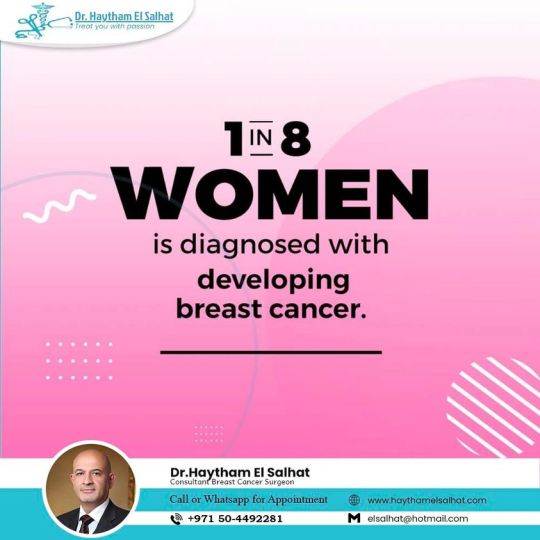
In recent years, the healthcare landscape in Abu Dhabi, UAE, has witnessed remarkable advancements, particularly in the field of oncology. From specialized oncologists to state-of-the-art facilities, the capital city has emerged as a leading destination for cancer care in the region. This blog aims to shed light on the vital services provided by oncologists, colorectal and proctology specialists in Abu Dhabi, with a particular focus on colorectal surgery and breast cancer awareness. So, let's dive into the world of cancer care in Abu Dhabi.
Understanding Colorectal Health:
Colorectal health is a crucial aspect of overall well-being. In Abu Dhabi, skilled proctologists specialize in the diagnosis and treatment of conditions related to the colon and rectum in Abu Dhabi. If you are experiencing symptoms like persistent abdominal pain, changes in bowel habits, or blood in your stool, consulting a proctologist can be essential to identify and address any potential concerns.
The Role of Oncologists in Abu Dhabi:
Oncologists play a pivotal role in the battle against cancer. These highly trained medical professionals specialize in diagnosing and treating various types of cancer, employing cutting-edge therapies and individualized treatment plans. Abu Dhabi houses a multitude of oncologists who provide compassionate care, supporting patients throughout their cancer journey.
Colorectal Surgery Abu Dhabi:
Colorectal surgery is a specialized branch of surgical care dedicated to treating conditions affecting the colon and rectum. Abu Dhabi's healthcare facilities are equipped with advanced technology and skilled surgeons, ensuring patients receive the best possible outcomes. From minimally invasive procedures to complex surgeries, the comprehensive approach ensures optimal patient care.
Breast Cancer Awareness UAE:
Breast cancer awareness is a vital aspect of promoting women's health in the UAE. With increasing awareness campaigns and education, women are encouraged to undergo regular screenings, ensuring early detection of breast cancer. In Abu Dhabi, numerous organizations and medical professionals actively participate in spreading awareness, emphasizing the significance of early diagnosis and timely treatment.
Breast cancer is the most common cancer among women in the United Arab Emirates (UAE), with 1 in 8 women being diagnosed in their lifetime. The average age of diagnosis is 10 years younger in the UAE than elsewhere in the world.
There are a number of things that women can do to reduce their risk of breast cancer, including:
Exercising regularly
Maintaining a healthy weight
Eating a healthy diet
Avoiding smoking
Having regular mammograms
If you notice any changes in your breasts, such as a lump, dimpling, or nipple discharge, it is important to see your doctor right away. Early detection is key to successful treatment.
There are a number of resources available to help women in the UAE learn more about breast cancer and get screened. These include:
The Al Jalila Foundation's #PINKtober campaign
The Emirates Health Services' Awareness Center
The Brest Friends support group
How to Get Screened for Breast Cancer in UAE
There are a number of places where women in the UAE can get screened for breast cancer. These include:
Public hospitals
Private clinics
Community health centers
Some places offer free or low-cost breast cancer screenings. To find a screening location near you, you can contact your local health authority or search online.
What to Expect at a Breast Cancer Screening
A breast cancer screening typically includes a physical exam of your breasts by a doctor or nurse. You may also have a mammogram, which is an X-ray of your breasts.
The physical exam is usually quick and painless. The mammogram may be a bit uncomfortable, but it is not usually painful.
If your doctor or nurse finds anything during your screening that concerns them, they may recommend additional tests.
How to Talk to Your Doctor About Breast Cancer
If you are concerned about breast cancer, it is important to talk to your doctor. They can help you understand your risk factors and recommend the best screening options for you.
When you talk to your doctor, be sure to ask about:
Your risk of breast cancer
The benefits and risks of different screening options
How often you should be screened
How to Get Support if You Are Diagnosed with Breast Cancer
If you are diagnosed with breast cancer, there are a number of resources available to help you. These include:
Your doctor or nurse
The Brest Friends support group
The Al Jalila Foundation's #PINKtober campaign
You can also find support online at websites such as:
The Breast Cancer Care website
The American Cancer Society website
Breast Cancer Awareness Month
October is Breast Cancer Awareness Month. This is a time to raise awareness about breast cancer and to encourage women to get screened.
There are a number of events and activities that take place during Breast Cancer Awareness Month. These include:
Walks and runs
Educational workshops
Pink ribbon campaigns
You can find out more about Breast Cancer Awareness Month and how to get involved at the following websites:
The Al Jalila Foundation's #PINKtober website
The Emirates Health Services' Awareness Center website
Proctologists in Abu Dhabi: Specialists for Rectal Health Proctologists are medical specialists who focus on the diagnosis and treatment of disorders related to the rectum and anus. Abu Dhabi hosts highly trained proctologists who offer expert care for conditions such as hemorrhoids, anal fissures, and rectal prolapse. Patients can find relief and comfort through these specialized services, ensuring their overall well-being.
The Importance of Early Detection:
Early detection remains the cornerstone of successful cancer treatment. Whether it's colorectal cancer or breast cancer, detecting the disease in its initial stages significantly improves the chances of successful treatment and long-term survival. Regular screenings and self-examination are vital tools in detecting cancer early, empowering individuals to take charge of their health proactively.
Conclusion:
The healthcare landscape in Abu Dhabi is continuously evolving, particularly in the field of oncology and cancer care. With a strong presence of experienced oncologists, colorectal surgeons, and proctologists, patients have access to top-notch medical care and personalized treatment plans. Moreover, the emphasis on breast cancer awareness and early detection initiatives ensures that individuals are better equipped to face cancer head-on.
Remember, your health is your most valuable asset. Don't hesitate to reach out to healthcare professionals in Abu Dhabi for regular check-ups and consultations to ensure a healthy and happy life.
#Proctologists in Abu Dhabi#Breast Cancer Awareness UAE#Colorectal Surgery Abu Dhabi#Oncologists in Abu Dhabi#colon and rectum in Abu Dhabi
0 notes